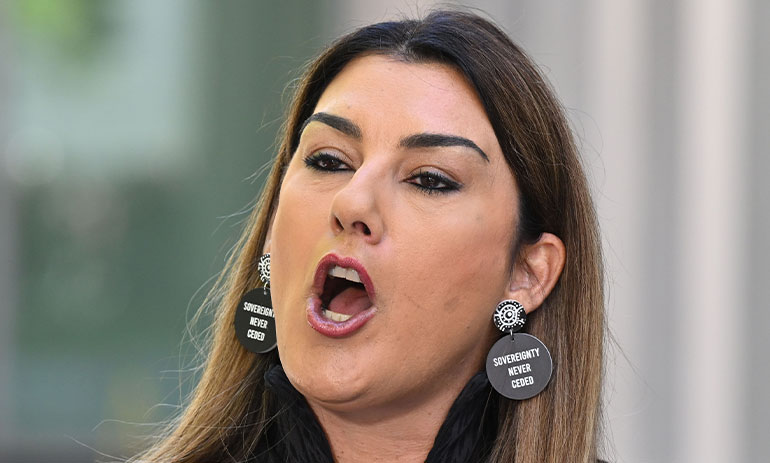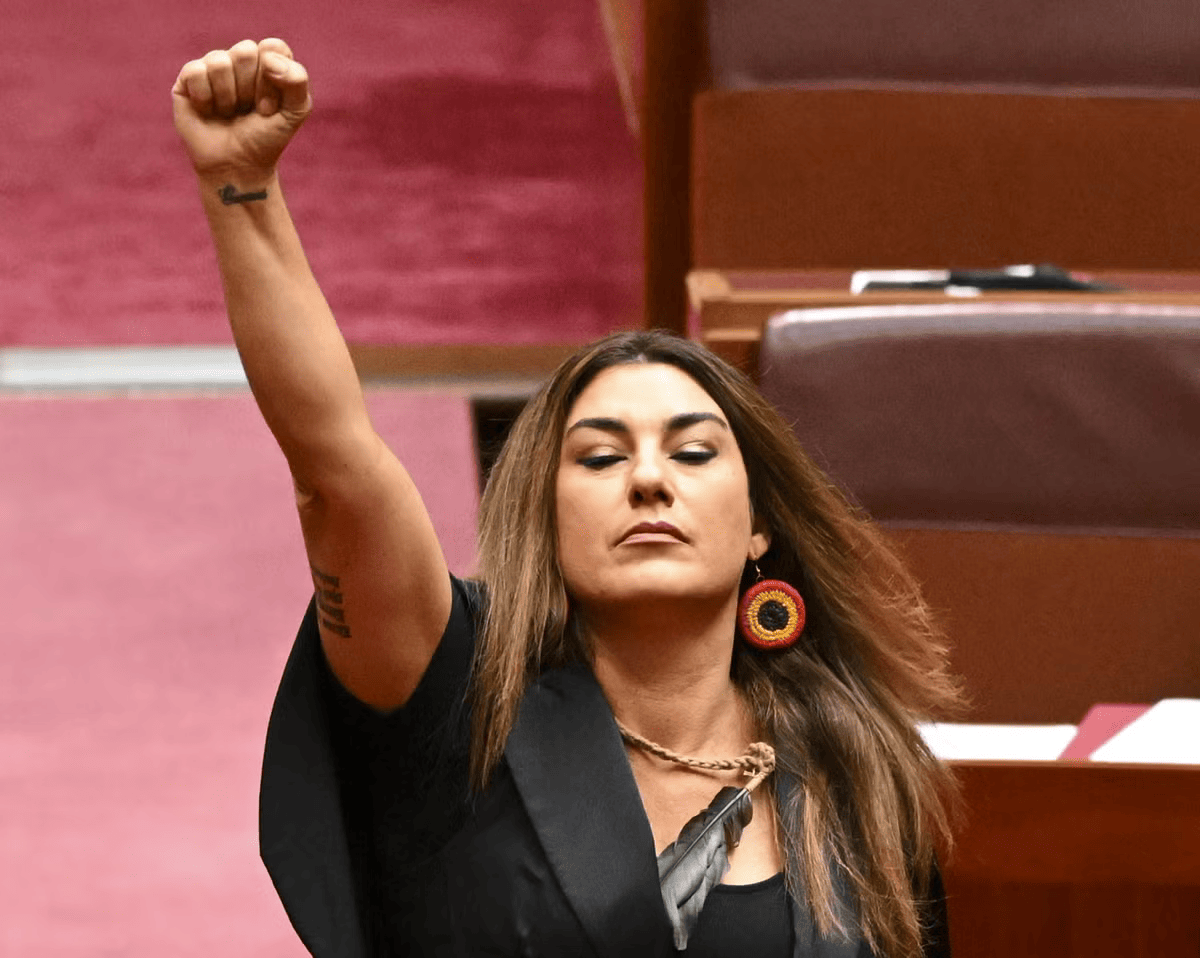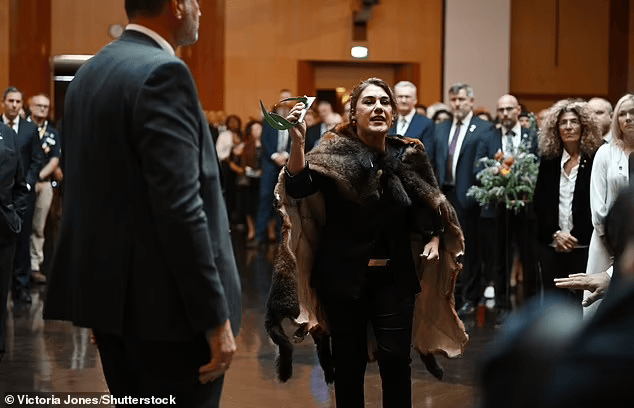During King Charles’ official visit to Australia, an independent senator caused a stir by loudly proclaiming, “You are not my King.” The interruption occurred shortly after the King had delivered a speech at Australia’s Parliament House in Canberra on the second day of his engagements in the country.

Senator Lidia Thorpe, a representative from Victoria and an Aboriginal Australian, began shouting as the King left the lectern to join Queen Camilla on stage. She accused the monarchy of overseeing a history of genocide against her people, stating: “This is not your land, you are not my King.” Thorpe’s protest lasted for about a minute before she was escorted away by security.
Despite the disruption, the ceremony proceeded without further mention of the incident, and the King and Queen continued to greet the public outside the Parliament House.
A Call for Indigenous Rights
Thorpe, an advocate for Aboriginal rights, has long pushed for a treaty between the Australian government and its Indigenous populations, emphasizing that sovereignty was never ceded to the British Crown. After the protest, Thorpe told the BBC that she wanted to send a strong message to King Charles, asserting that he has no legitimate authority over Australia’s Indigenous peoples.

“He is not of this land,” she declared, insisting that Australia should lead discussions on a peace treaty and not remain beholden to a “coloniser” whose ancestors were responsible for atrocities against her people. Thorpe, who wore a traditional possum skin cloak during her protest, has previously criticized the monarchy, calling Queen Elizabeth II a “colonizer” when she was sworn in as a senator in 2022.
Mixed Reactions to the Royal Visit
While Thorpe’s protest underscored the ongoing debate about Indigenous rights in Australia, many people were excited to see the royal couple. Crowds gathered outside Parliament House in the intense Canberra heat, waving Australian flags.
Jamie Karpas, a 20-year-old royal enthusiast, expressed her excitement, saying: “The Royal Family is a big part of our culture. They’re part of our lives.” Another attendee, CJ Adams, a US-Australian student, was eager to witness a historic moment, saying: “He’s the head of state of the British Empire, right – you’ve got to take the experiences you can get.”
Not all reactions were positive, however. A small group of protesters also gathered in front of Parliament House, although they were far outnumbered by royal supporters.
A Historic Visit with Indigenous Recognition
King Charles’ visit to Australia was always expected to touch on the country’s history with its Indigenous peoples. Upon arriving in Canberra earlier in the day, the royal couple was welcomed by a group of politicians, schoolchildren, and Ngunnawal Elder Aunty Serena Williams, who performed a traditional welcome. Inside the Parliament House, the King spoke of the nation’s journey towards reconciliation, acknowledging the role of Indigenous wisdom in shaping his perspective.
“In my many visits to Australia, I have witnessed the courage and hope that have guided the nation’s long and sometimes difficult journey towards reconciliation,” he said. However, moments after his speech concluded, Thorpe’s protest echoed through the hall.
No Official Comment from the Palace
Buckingham Palace has not commented on the protest. A palace source did emphasize, however, that King Charles and Queen Camilla were deeply touched by the thousands who had gathered to greet them in Canberra.
This visit marks King Charles’ first official trip to Australia since becoming the head of state following the death of Queen Elizabeth II in September 2022. Due to the King’s ongoing cancer treatment, the tour has been shorter than past royal visits.
A Lighter Moment
Despite the tense atmosphere, there was a lighter moment during the day when King Charles stopped to pet an alpaca wearing a small crown after visiting Canberra’s war memorial.
Australia’s Debate on Republicanism
Australia’s relationship with the monarchy has been a topic of debate for decades. In 1999, a referendum on whether the country should become a republic was decisively defeated. However, recent polls suggest that support for republicanism has grown, especially under Prime Minister Anthony Albanese, a known republican. Still, Albanese’s government has ruled out a second referendum anytime soon, following the defeat of a proposal on Indigenous recognition last year.




